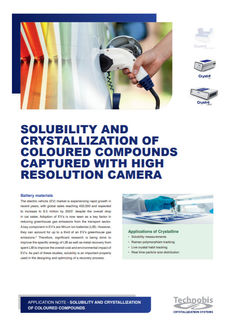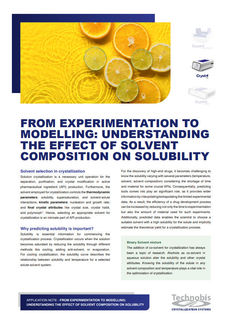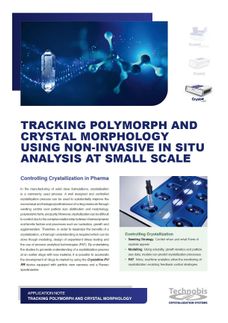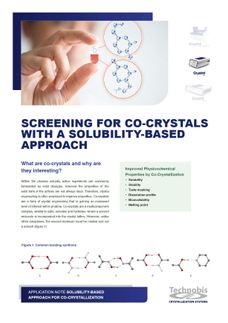Calculate Nucleation Rate from Induction Time Measurements. Theory and Application
Technobis Crystallization Systems B.V.
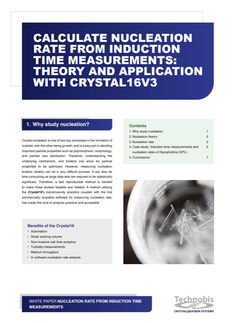
Discover a fast and reliable method to measure nucleation in your crystallization process
Crystal nucleation is one of two key processes in the formation of crystals (the other being growth) and is a key part in deciding important particle properties such as polymorphism, morphology, and particle size distribution. Therefore, understanding the underlying mechanism, and kinetics can allow for particle properties to be optimized.
However, measuring nucleation kinetics reliably can be a very difficult process. It can also be time-consuming as large data sets are required to be statistically significant. Therefore, a fast reproducible method is needed to make these studies feasible and reliable. A method utilizing the Crystal16’s transmissivity analytics coupled with the first commercially available software for measuring nucleation rate, has made this kind of analysis practical and accessible.
Content overview: 1. Why study nucleation? 2. Nucleation theory 3. Nucleation rate and induction time measurements 4. Case study: Induction time measurements and nucleation rates of Diprophylline (DPL) 5. Conclusions
Download white paper now
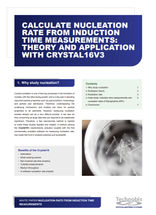
Calculate Nucleation Rate from Induction Time Measurements. Theory and Application
Discover a fast and reliable method to measure nucleation in your crystallization process
